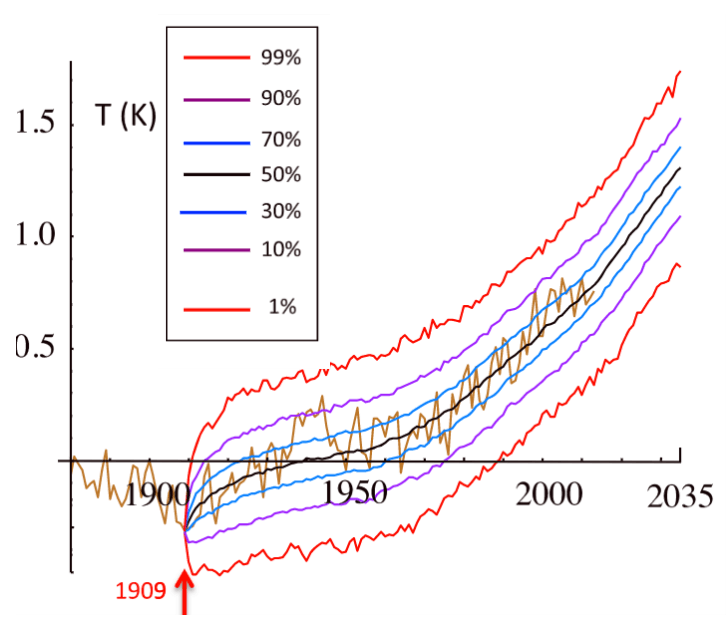
Factually inaccurate : There is no significant scientific disagreement about the fact that human activity is responsible for climate change.

REVIEW
CLAIM: I think that measuring with precision human activity on the climate is something very challenging to do and there’s tremendous disagreement about the degree of impact. So no, I would not agree that it’s a primary contributor to the global warming that we see.
This is part of a series of reviews of 2017’s most popular climate stories on social media.
Andy Pitman, Director of the ARC Centre of Excellence for Climate System Science, The University of New South Wales:
Its an incorrect statement because it convolutes three statements.
“I think that measuring with precision human activity on the climate is something very challenging to do”
This statement is true. It is very challenging, but 30 years of intense effort by a vast array of scientists have done it.
“and there’s tremendous disagreement about the degree of impact.”
This statement is false in terms of the implications of the decision. That is, there is no scientifically well-informed disagreement that the impact will be significant and should be built into any sensible risk management. It is true that there is disagreement on the degree of impact, but not that the impact will be significant. To be clear, there is agreement that the impact will be very serious, but how very serious is argued.
“So no, I would not agree that it’s a primary contributor to the global warming that we see.”
That statement is inconsistent with every independent assessment of the scientific literature I have seen, except from organisations set up to deny the science and misinform the public.
The statement that global warming is unequivocal is supported by a massive body of work. The main statement comes from the 5th assessment report by the Intergovernmental Panel on Climate Change, a report agreed to by the global scientific community, and by the world’s governments.
Shaun Lovejoy, Professor, McGill University:
Let’s say you are given only three pieces of information:
a) The annual average value of the global temperature from 1880 to 1909
b) The atmospheric CO2 concentration for each year
c) The effective climate sensitivity
With only this, the temperature over the 104 years between 1909 and 2013 could be incredibly well forecast (black line in the figure below), indeed to about an accuracy of ±0.22 °C (purple lines, 90% confidence limits). This tight limit includes the so-called “pause” of the early 2000s.
Knowing only the CO2 therefore allows us to predict the temperature more than 100 years into the future. Given that the total change over this time was 1.1 °C, the prediction is correct to within 20%. We know that the CO2 was anthropogenic, therefore its increase was not caused by a change of temperature. We can conclude that CO2 is responsible for much of the change in temperature over the last century.
- Figure adapted from Lovejoy (2015), Using scaling for macroweather forecasting including the pause, Geophysical Research Letters
Ed Hawkins, Principal Research Fellow, National Centre for Atmospheric Science:
John Tyndall measured the heat absorption properties of various gases, including carbon dioxide, in his laboratory in the 1850s and suggested that changing their atmospheric concentrations would alter the climate. The levels of carbon dioxide have increased ever since and Tyndall’s prediction has become a reality. Global temperatures have risen by about 1°C, causing sea ice and land ice to melt, sea levels to rise, and extreme heatwaves and rainfall to increase. The impacts of increasing levels of carbon dioxide in the atmosphere are being seen already and the risks for the future are considerable unless we stabilise our emissions of greenhouse gases.



